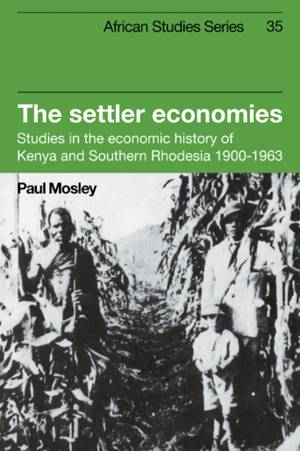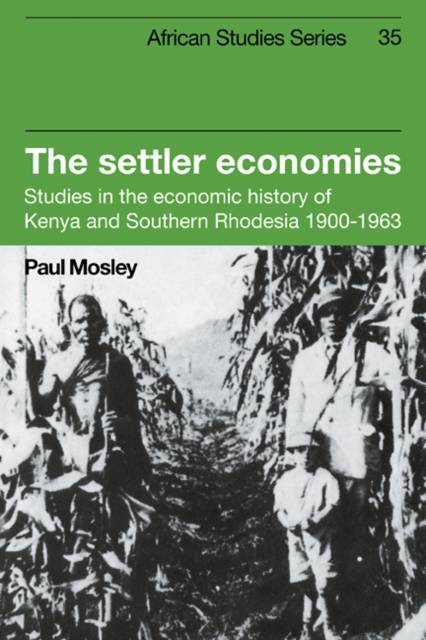
Bedankt voor het vertrouwen het afgelopen jaar! Om jou te bedanken bieden we GRATIS verzending (in België) aan op alles gedurende de hele maand januari.
- Afhalen na 1 uur in een winkel met voorraad
- In januari gratis thuislevering in België
- Ruim aanbod met 7 miljoen producten
Bedankt voor het vertrouwen het afgelopen jaar! Om jou te bedanken bieden we GRATIS verzending (in België) aan op alles gedurende de hele maand januari.
- Afhalen na 1 uur in een winkel met voorraad
- In januari gratis thuislevering in België
- Ruim aanbod met 7 miljoen producten
Zoeken
The Settler Economies
Studies in the Economic History of Kenya and Southern Rhodesia 1900 1963
Paul Mosley
€ 64,95
+ 129 punten
Omschrijving
The economic history of developing countries, particularly the former colonies, has become polarized between two ideologies. The apologists for colonialism have emphasized the stimulus given to the indigenous economy by the introduction of foreign capital; the 'underdevelopment theorists' have turned this interpretation on its head and represented the relationship as being, particularly in 'settler colonies' such as Kenya and Zimbabwe, one not of stimulus but of rape and plunder. In this study, Dr Mosley considers the economies of colonial Kenya and Southern Rhodesia and argues, in the light of recently assembled statistical data, that the truth is more complex than either of these simple interpretations allows. At the level of policy, most white producers acknowledged that they could not afford to let 'white mate black in a very few moves': they needed his cheap labour, cattle and maize too much to wish to damage seriously the peasant economy that sustained them.
Specificaties
Betrokkenen
- Auteur(s):
- Uitgeverij:
Inhoud
- Aantal bladzijden:
- 304
- Taal:
- Engels
- Reeks:
- Reeksnummer:
- nr. 35
Eigenschappen
- Productcode (EAN):
- 9780521102452
- Verschijningsdatum:
- 12/03/2009
- Uitvoering:
- Paperback
- Formaat:
- Trade paperback (VS)
- Afmetingen:
- 152 mm x 229 mm
- Gewicht:
- 449 g

Alleen bij Standaard Boekhandel
+ 129 punten op je klantenkaart van Standaard Boekhandel
Beoordelingen
We publiceren alleen reviews die voldoen aan de voorwaarden voor reviews. Bekijk onze voorwaarden voor reviews.









